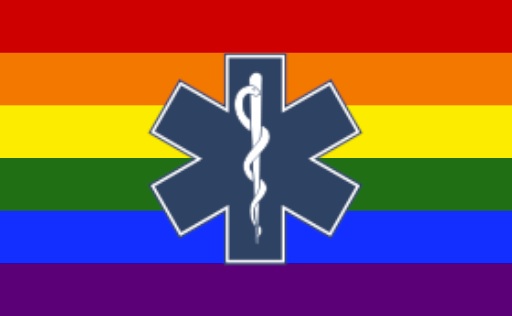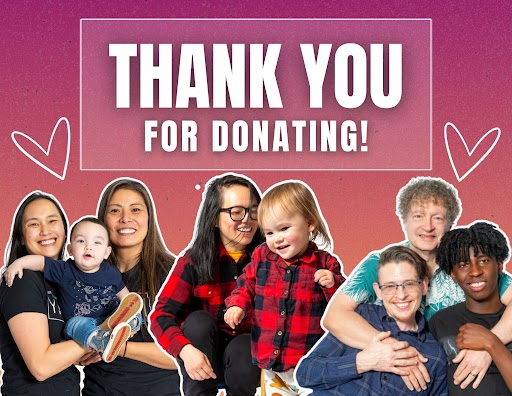This morning, Our Family Coalition joined with 114 other national organizations in expressing our opposition to the Graham-Cassidy-Heller-Johnson proposal to repeal and replace the Affordable Care Act. From the letter: “We are deeply concerned about the negative impact that the Graham-Cassidy bill would have on many vulnerable and marginalized communities—including the LGBTQ community—that already face systemic discrimination and healthcare disparities.”
Full text below and in PDF form here.
United States Senate
Washington, DC 20510
September 25, 2017/
Dear Senator:
On behalf of the undersigned organizations representing millions of people who support equality for lesbian, gay, bisexual, transgender, and queer (LGBTQ) people nationwide, we write to express our opposition to the Graham-Cassidy-Heller-Johnson (Graham-Cassidy) proposal, and its underlying provisions to repeal and replace the Affordable Care Act (ACA). We are deeply concerned about the negative impact that the Graham-Cassidy bill would have on many vulnerable and marginalized communities—including the LGBTQ community—that already face systemic discrimination and healthcare disparities.
The ACA has served as a lifeline for millions of LGBTQ people who too often have found themselves cut off from critical healthcare services.(1) Prior to implementation of the ACA, LGBTQ people had some of the lowest insured rates of any population in the country. The individual market reforms, including the ban on preexisting condition exclusions, have made it possible for many in our community to obtain health insurance for the first time in their lives. Thanks to the ACA, from 2013-2017, the uninsurance rate for low- and middle-income LGBTQ people was reduced by 35%.(2) There is evidence that this reduction has been greater in states that opted for the Medicaid expansion,(3) and currently 1.8 million LGBTQ people rely on Medicaid.4 For those with particularly low incomes – under 250% of the federal poverty level – 40% of LGBTQ, compared with 22% of non-LGBTQ people, rely on Medicaid. For many people living with HIV, as one example, protections for those with pre-existing conditions has made insurance affordable and treatment accessible. Tens of thousands of people living with HIV have qualified for care under the Medicaid expansion, gaining access to life-saving treatments before becoming disabled by the virus. As a result, people living with HIV are able to have healthier and longer lives.
The Graham-Cassidy proposal will have a detrimental impact on the positive trend of health coverage for LGBTQ people and so many other vulnerable populations. Under previous repeal and replace legislation with comparable provisions for block-granting Medicaid the Congressional Budget Office projected 32 million people could ultimately lose coverage.(4) These projections foreshadow an unacceptable growth in the uninsured rate and an equally unacceptable exacerbation of health care disparities.
The Graham-Cassidy proposal fundamentally changes the Medicaid program, imposing a per capita cap funding structure and terminating the expansion of the program under the ACA. The magnitude of the lost funding will have a swift, stark, and devastating impact on the most vulnerable among us: women and children, the elderly, people with disabilities, and persons living with HIV. The legislation also strips the requirement to cover essential health benefits under the Medicaid expansion, leaving millions without access to the critical benefits that often save lives, such as substance abuse treatment and mental healthcare services.
The bill will also increase premiums for people with pre-existing conditions, including many significant, chronic health conditions for which LGBTQ people are at greater risk of experiencing relative to their peers. For example, people with major depressive disorder will see a premium surcharge of $8,490, while someone with breast cancer will see a surcharge of $28,660.(5) Research shows that 65% of LGBTQ people have a pre-existing medical condition, such as diabetes or heart disease.(6) Rather than increasing coverage, passage of this bill will cause millions of people to lose coverage while making coverage unaffordable for those who remain in the market.
Graham-Cassidy would give states broad waiver authority to eliminate the ACA’s core protections for people with pre-existing health conditions. Insurers would still have to offer coverage to those with pre-existing conditions, but they could make such coverage so expensive that it would be essentially meaningless. For LGBTQ older adults, many of whom face pronounced health disparities in physical and mental health, including depression, high blood pressure, heart disease, cholesterol, diabetes, obesity, and HIV/AIDS, cost increases of this magnitude would result in the loss of health care coverage.
Prior to the ACA, employer-provided health plans frequently limited the maximum amount of coverage employees could receive over their lifetime. In 2009, 59% of covered employees had health plans with lifetime maximums, meaning they could face bankruptcy if they encountered serious health problems and were left unable to cover their healthcare costs.(7) By allowing states to seek waivers to specified essential health benefit requirements, the Graham-Cassidy proposal gives states—and subsequently employers—the ability to narrow the definition of these essential health benefits. Ultimately, this would dismantle the ACA’s ban on lifetime limits and annual out-of-pocket spending limits for essential health benefits, once again leaving individuals to risk bankruptcy in order to obtain basic healthcare.(8)
LGBTQ people, particularly people of color and those living with HIV, face systemic discrimination and health disparities, which the ACA was helping to address. Graham-Cassidy would take us backward, shredding the health care safety net and leaving many in our community to risk bankruptcy in order to obtain basic health care. The one-two punch of gutting Medicaid and eliminating the ACA’s marketplace subsidies would strip coverage away from millions and inflict some of its worst harm on LGBTQ people, who already experience health disparities because of economic disadvantage and discrimination.
The provision barring Planned Parenthood and its affiliated clinics from participating in essential public health programs not only violates the procedural requirements of legislation adopted under budget reconciliation, it constitutes terrible health policy. Barring these clinics from receiving federal reimbursement for care provided will jeopardize the ability of these providers to deliver preventive healthcare services, such as cancer screenings and STD and HIV testing, as well as services like gender transition-related care that may not be offered elsewhere in many communities. Often, health centers such as Planned Parenthood offer the only culturally competent healthcare available to LGBTQ people, especially in rural and isolated areas. Rather than improving care options, Graham-Cassidy would disproportionately impact people— including people of color, immigrants, young people, and members of the LGBTQ community— who already face structural barriers to accessing care.
We strongly urge the members of the Senate to reject provisions such as those contained in the Graham-Cassidy-Heller-Johnson proposal that would harm millions of Americans and deny them the health benefits that save lives.
Sincerely,
Adolescent Counseling Services/Outlet • AIDS Foundation of Chicago • AIDS United • Alaskans Together For Equality • Alliance For Full Acceptance (AFFA • American Civil Liberties Union American Psychological Association • APLA Health • Asian & Pacific Islander American Health Forum • Basic Rights Oregon • BiNet USA • California LGBT Health and Human Services Network • Callen-Lorde Community Health Center • Center For Black Equity CenterLink: The Community of LGBT Centers • Colorado Consumer Health Initiative • Colorado Organization for Latina Opportunity and Reproductive Rights (COLOR) • Community Research Initiative of New England • Consumer Health First • Dab the AIDS Bear Project • Equal Rights Washington • Equality Arizona • Equality California • Equality Federation • Equality Florida • Equality Michigan • Equality North Carolina • Equality Ohio • Equality Pennsylvania • Equality Texas • Equality Utah • Equality Virginia Equality • Maine • Fair Wisconsin • Family Equality Council • Fenway Health • Forward Together • Freedom Oklahoma • Gender Health Center • Georgia Equality • Georgians for a Healthy Future • GLBTQ Legal Advocates & Defenders (GLAD) • GLMA: Health Professionals Advancing LGBT Equality • HealthRIGHT 360 • HIV Medicine Association • Human Rights Campaign • Jackson Cty Democrats (OR) LGBTQ Caucus • JCD LGBTQ Caucus (Oregon) • Justice in Aging • Lambda Legal • LGBT Center of Raleigh • Liberty City Democratic Club • Los Angeles LGBT Center • Lotus Rising Project • LPAC • MassEquality.org • Mazzoni Center • Minnesota AIDS Projec • MomsRising • Montana Human Rights Network • Movement Advancement Project • NASTAD • National Asian Pacific American Women’s Forum (NAPAWF) • National Black Justice Coalition • National Center for Lesbian Rights • National Center for Transgender Equality • National Coalition for LGBT Health • National Coalition of Anti-Violence Programs • National Council of Jewish Women • National Gay & Lesbian Chamber of Commerce (NGLCC) • National Health Law Program • National LGBT Bar Association • National LGBTQ Task Force Action Fund • National Queer Asian Pacific Islander Alliance (NQAPIA) • NEAT – the National Equality Action Team • NMAC • One Colorado • Our Family Coalition • Out2Enroll • OutFront Minnesota • OutServe-SLDN • Palmetto Projec • People For the American Way • PFLAG National • Pride at Work • Progressive Leadership Alliance of Nevada • PROMO • Resource Center (Dallas, TX) • Rogue Rainbow Elders • Ryan White Medical Providers Coalition • Sacramento LGBT Community Center • SAGE (Advocacy & Services for LGBT Elders) • SC Equality • SCPHCA-SCMHP • Secular Coalition for America • SEIU District 1199 WV/KY/OH • Sexuality Information and Education Council of the U.S. (SIECUS) • Southern AIDS Coalition • Southern HIV/AIDS Strategy Initiative • The AIDS Institute • The Center for American Progress • The Gay and Lesbian Community Center of Southern Nevada • The Health Initiative • The Lesbian, Gay, Bisexual & Transgender Community Center • The National Latina Institute for Reproductive Health • The Pride Center at Equality Park • The Tennessee Transgender Political Coalition • The Trevor Project • Transgender Law Center • True Colors Fund • Universal Health Care Action Network of Ohio • URGE: Unite for Reproductive & Gender Equity • Whitman-Walker Health • Wyoming Equality • Young Invincibles
(3) https://www.americanprogress.org/issues/lgbt/reports/2014/11/17/101575/moving-the-needle/
(7) https://kaiserfamilyfoundation.files.wordpress.com/2013/04/7936.pdf


